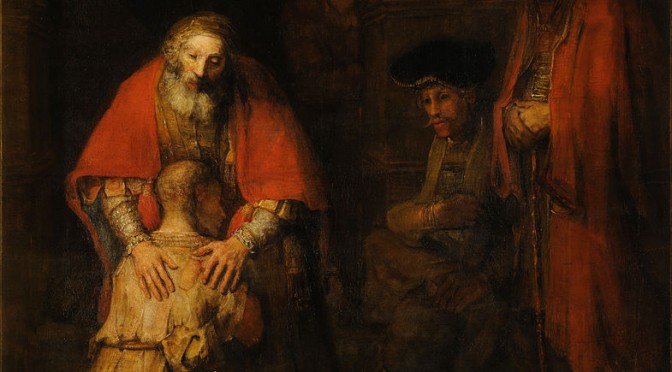
There is much more to this story. There is the young man’s departure and his humble hopes for mercy, rather than reconciliation. There is the elder brother and his distrust, anger, and departure. It is a story much more robust than this one moment.
This story is also the third of three stories of the lost being found. Jesus also speaks of a lost sheep and a lost coin, describing much more than a singular image of a merciful GOD who comforts us when we come back.
This is a story appropriate to Lent, this time in which we are called to reconcile with one another and repent: to turn from our sinful past and accept a GOD-directed future.
This story is also a warning. A warning that our selfishness and misunderstanding may divide us, rather than reconcile. That we may, in fact, be the elder brother, confused and angry at our father and brother. A state that is self-imposed.
Both sons need reconciliation and both are offered it by the Father. And the only question that matters is this: will they take it?
[Here is a previous post about the Lost Sons parable and here is one about all three Lost parables together.]

Leave a Reply